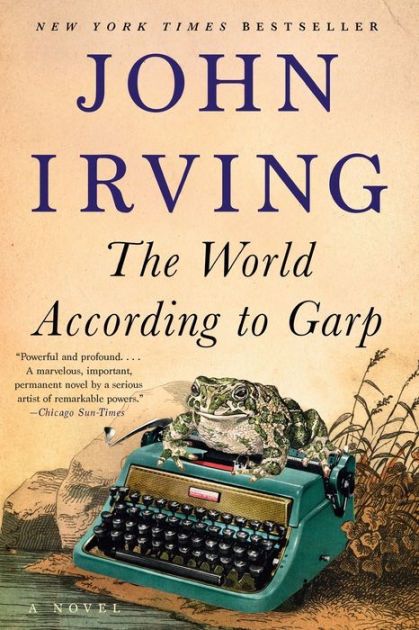JFK airport is a shitshow, particularly if you are unused to flying through it and trying to make a connection from one side of the airport to the other. But the random people who work there that I asked for guidance were extremely helpful – and I’m not kidding about that.
Quest Bars are an exceptionally great travel snack to pack in your go bag. They’re satisfying when you don’t have time to get real food; they’re just tasty enough to enjoy while eating them, but not tasty enough that you’re ever tempted to eat them recreationally.
I got this recommendation years ago from a podcaster named CGP Grey on the Cortex podcast. 100% correct, extremely useful.
RIP Joseph Wambaugh, 88, ex-cop and writer, who wrote brilliant police procedurals and true crime, including "The Onion Field."
I loved his books. His cops were sometimes heroic, sometimes bad and dirty, sometimes both at once. He wrote lovingly about them and about cold-blooded murderers.
He had a remarkable life, continuing to work as a policeman years after his writing career took off, quitting only when he became too famous for police work.
Robert D. McFadden at the NY Times::
“I’m very interested in the concept of the sociopath, very interested, because my conscience has bothered me all my life,” he told The Los Angeles Times in 1989. “Talk about regrets – I have about 20 every day. I was educated in Catholic schools, and they did that to me. So I have to cope with a conscience all the time. And I’m interested in a creature who has none of that.”
I’m at the airport at the gate waiting for a flight out. There’s a guy here sitting in a chair literally playing the trombone. I’m pretty sure he’s a passenger — I don’t think he works for the airline as an onboard trombonist.
At least it’s not a tuba.
How could they have named the company “Anker” when “Wanker” was right there?
I’m getting ready for a six-day business trip and I’m packing light .

The Fastest and Easiest Second Passports for Americans in 2025
I qualify for Poland, Lithuania and Latvia, if I can get the paperwork to prove it. I presume Julie qualifies too, as my spouse.
I’m not planning on going anywhere, but if things get extremely DOGE-MAGA, a second passport might be a useful thing to have.
‘I’m proud of its wonderful teens’: Amy Heckerling on how Clueless revolutionised the high-school comedy. I loved “Clueless” and I’m man enough to admit it.
Startup Lonestar Data Holdings is catching a ride on a SpaceX rocket to put a mini data center on the moon — a proof-of-concept for the real thing. I get the technical and legal benefits of putting a data center in space, but why the moon? Why not in orbit, where it would be closer to home and more easily serviced?
Burritos, AI art, corporate fascism
Ryan Broderick at Garbage Day: “You ordered a private taxi for your burrito.” Also: " … AI art is the aesthetic of 21st-century fascism the same way Italian Futurism was in the last century."
Also: “The Washington Post as a tool of fascism:”
As Juniper wrote on Bluesky, “I think everyone needs to stop framing what’s going on as ‘bending the knee’ and what’s really happening which is ‘they’re finally feel free to do what they’ve always wanted to do.’”
Oh, and by the way, totally unrelated. I’m still working my way through The Rise and Fall of the Third Reich. I just got to the section where all the German industrialists that supported Adolf Hitler’s rise to power because he was anti-union get their companies nationalized and they all get thrown in jail.
More than a billion people now watch podcasts on YouTube every month. This seems bonkers to me. Podcasts aren’t for watching. They’re for listening to, while walking the dog, driving or doing chores around the house. And yet YouTube is apparently now the most popular podcast platform by far.
Prominent military contractors, including former Blackwater CEO Erik Prince, pitched a plan for mass deportations calling for ‘processing camps’ and a private citizen ‘army’.
“The idea of forcibly removing 12 million people from the United States is not just operationally impossible — it is a moral and economic catastrophe in the making,” said Jason Houser, former ICE chief of staff in the Biden administration.
RIP Michelle Trachtenberg, 39. She played “Dawn,” the younger sister on “Buffy the Vampire Slayer,” and also appeared as a villain on “Gossip Girl.” Her death is apparently from natural causes. She recently had a liver transplant.
A company looks to relaunch the commercial airship business with a design that looks like a flying butt
A British company hopes to launch commercial airships to carry cargo and up to 130 passengers on relatively short trips, replacing regional airlines and ferries.
This is very cool, but it feels like I have read an article like this every five years, and the businesses never take off (so to speak). Airships seem to be just plain impractical.
I downloaded about 250 of my purchased Kindle ebooks, roughly a third of my collection. And now it appears Amazon has shut that option down.
I’ve been a loyal Kindle customer for 14 years, and Amazon gave me (and its other customers) a “fuck you” in return.
(Relatively) easy instructions for downloading Kindle ebooks before the deadline, which is today or tomorrow
From the Department of Doing Thing at the Last Minute: I think I was able to successfully use these instructions to batch-download all my Kindle books before Amazon switches off that capability tonight or tomorrow. The instructions require installing the Tampermonkey Chrome extension, cutting-and-pasting a script into the extension’s configuration window and then letting the script run in the background.
As I type this, the script has been running for four hours and is only a third of the way through. That’s OK; I can just let it run in the background until it’s done.
I had previously found these instructions, which require more advanced command-line skills than I possess.
Sucks that Amazon can get away with making this change. I am far less likely to buy more ebooks from them after this rugpull.
“AITA for refusing to let my girlfriend bring her dead dog’s ashes on vacation?" 100% he’s the asshole.
Archaeologists discovered fossilized footprints and tracks suggesting the oldest known use of a handcart. The discovery illuminates life at the end of the last ice age about 23,000 years ago
Monitors at the U.S. Department of Housing and Urban Development were hacked [Monday] morning and made to display an AI-generated video of President Donald Trump licking Elon Musk’s feet."
— Ryan Broderick at Garbage Day
Broderick theorizes that Trump lets Musk gets away with what Musk does because Musk has convinced Trump that Musk bought the election.
Also from Broderick: Yes, the far right did pretty well in Germany, but it was an equally big showing for the Left party. My $0.02: This underscores the theory that we might not be seeing a global swing to the right in democracies, but rather global ouster of incumbents.
And: “A crypto trader that went by the username @MistaFuccYou killed himself on a X livestream over the weekend, telling viewers, ‘If I die, make me a memecoin.'”
Rep. Mark Alford tells fired Kansas City federal workers “God has a plan." Alford’s constituents, are suffering and angry and Alford is laughing at them.
Alford is a former Fox News host because of course he is.
How an obscure advisory board lets utilities steal $50b/year from ratepayers
Cory Doctorow at Pluralistic: Americans served by privately owned electric companies saw their rates increase 49% over inflation over the last three years. Americans served by publicly electrical utilities saw rates go up at 44% below inflation over the same period.
Cory:
Power is that much-theorized economic marvel: a “natural monopoly.” Once someone has gone to the trouble of bringing a power wire to your house, it’s almost impossible to convince anyone else to invest in bringing a competing wire to your electrical service mast. For this reason, most people in the world get their energy from a publicly owned utility, and the rates reflect social priorities as well as cost-recovery. For example, basic power to run lights and a refrigerator might be steeply discounted, while energy-gobbling McMansions pay a substantial premium for the extra power to heat and cool their ostentatious lawyer-foyers and “great rooms.”
But in America, we believe in the miracle of the market, even where no market could possibly exist because of natural monopolies. That’s why about 70% of Americans get their power from shareholder-owned companies, whose managers' prime directive is extracting profit, not serving their communities.
Your Local Epidemiologist: “The overlap between medical and scientific professionals and pro-vaccine positions is nearly universal–because vaccines work” The Trump administration is undermining our public health infrastructure as flu and measles are rising.
Ian Welsh: Germany’s Merz Is A Moron, But At Least He’s Got Some Guts Merz realizes Germany needs to declare independence from the US.
Mapquest, which is still a thing, has a “Gulf of… " generator. The body of water formerly known as the Gulf of Mexico is now the Gulf of Mitch.
Rusty Foster: “If Trump Season One was a galvanizing historical threat to the Republic, so far Season Two is a re-tread with a lot of the same tropes but more D-list celebrity cameos and a much less coherent plot.”
The coup has failed
The Coup Has Failed. Also: The Democratic Brand Has Tanked. Trump Is Doing the Same to the Republican Party. And: James Carville says the Trump administration will collapse within 30 days. Democrats just need to “play possum,” Carville says. All may be true; but Trump has more lives than a cat. He repeatedly teeters on the verge of destruction and bounces back stronger than ever.
I’m not counseling despair — Trump and his movement are beatable. But don’t take anything for granted.
Looks like Dave Winer is doing valuable work on Wordland, a simple, web-based front end for Wordpress. It appears to be an implementation of the WordPress for One idea he talked about last year. No Mastodon or BlueSky integration, just RSS. I love seeing more simple, easy-to-use blogging platforms.
News that got my attention today
Conservatives won the German elections but the far-right AfD doubled support.
What is Long Covid: A beginner’s guide. By Julia Doubleday.
Your kink is health care? Good luck, babe: When Chappell Roan spoke out to ask the music industry to offer health benefits to struggling musicians, the industry struck back to shut her up to protect their oligopoly. In the music industry, a few big companies dominate everything — recording, distribution, publicity and performance. Musicians and fans have no freedom to take their business elsewhere." [For] a capitalist society to function, there has to be competition. And if everything’s connected and all the interests are shared on one side, there’s no way to compete,” Black Keys drummer Patrick Carney said.
The New Antitrust Consensus: The Trump administration is maintaining the merger guidelines that Lina Khan co-authored, and big business is angry.
Hamilton Nolan: Don’t look for a governing philosophy in the White House and Republican Party — Donald Trump is a crime boss. “The goal of all this is not ‘remaking the government in a conservative image’—it is ‘if you want anything, you have to ask me for it.’ The rules that governed how the government works are tossed out and replaced with ‘Trump’s will.’ That’s how mob bosses rule.”
Sources: The Guardian First Thing, Pluralistic
Something I saw while walking the dog: This “Blessing Box” in front of a church, stocked with small food donations

Today's news and links that got my attention
Pope Francis is in critical condition after a respiratory crisis
Measles outbreaks in Texas and New Mexico sickened nearly 100 people, with the number of cases is expected to rise. Only five of the victims are known to be vaccinated.
A Democratic trustee at Chula Vista Elementary School District in San Diego ran for a different seat on the school board in order to unseat another Democrat, who the first trustee and a board ally opposed. This set off events that led to a Republican being appointed to the board, changing a 4-1 Democratic majority on the board to 3-2. The county Democratic Party is not happy. This whole thing is more complicated than a season of “Slow Horses.”
A self-described American Christian missionary, Daniel Martindale, went undercover in Ukraine to spy for Moscow. He’s part of a growing ultraconservative American embrace of Russia and rejection of the US.
Six things E.R. doctors wish you’d avoid: Don’t wear crocs in ice and snow. “Don’t trust trampolines.” “Don’t ignore sudden symptoms … If you experience something like severe chest pain or paralysis of a body part, come to the E.R. immediately….” “Don’t pet strange dogs.” Fuck that last one; I am absolutely petting every dog I can.
In 2011, Ray Richmond, his brother and sister discreetly deposited their mother’s ashes (her “cremains”) in Clifton’s, a Los Angeles cafeteria. This short essay has one surprise after another.
The perfect girl next door: How do you live your mediocre life in the shadow of a hipster goddess?
Man, it was so great to be horrible, back when I was young and pretty! In fact, I want to urge every young and youngish woman out there to take advantage of their hotness for as long as possible, because it’s fun and it’s good for you and everyone should literally be punished by how amazing you look. You need to grind their faces into the shag carpet of what an unbearable smoke show you are. Because so many complete dolts are going to make you pay for so many stupid reasons moving forward — for being interesting, for having a brain in your skull, for being bored by them because they are objectively boring, for growing into a mature adult with firm boundaries and clear expectations. So smear your raw hotness all over their dumb-dog faces for as long as you possibly can.
I did not note the byline so I had to read the whole thing to get to the tagline at the end, which told me the writer is the talented Heather Havrilesky.
More from Heather on the perfect girl next door:
Being stubborn about trivial things is sometimes a way of protecting yourself from acknowledging far more important things that you want but can’t admit to wanting. If I had more compassion for myself, I would’ve figured out that what I wanted very badly was to be understood, to be seen clearly, to be recognized as a loving person in spite of my resting bitch face. But I didn’t respect my own core needs – I was raised to ignore and ridicule my core needs, quite honestly; that’s just how my people do it – so I couldn’t stop inflating the importance of absolutely trivial irritations and superficial obstacles.
Additional source: The New York Times Today’s Headlines
News that got my attention today
Trump dismissed four-star Gen. Charles Q. Brown Jr., the joint chiefs of staff, a fighter pilot, and replaced him with a retired white three-star general loyal to Trump, passing over the usual chain of command. The chief of staff traditionally spans administrations. The change included a purge of six Pentagon officials, including a woman, and furthers the Republican white supremacist, anti-women, sexist, authoritarian agenda.
Protesters confronted California Senate Minority Leader Brian Jones, of Santee, Calif., who is pandering to white supremacy and xenophobia by restricting California’s so-called “sanctuary city” law.
School shooter Brenda Spencer, 62, was denied parole for the sixth time. She opened fire on a San Diego elementary school in 1979, killing two and injuring nine others, and later explained her reason: “I don’t like Mondays. This livens up the day.” The shooting became the inspiration for a song, “I Don’t Like Mondays," by the Boomtown Rats, an Irish band, written by Bob Geldof and Johnnie Fingers. It is a lovely piano ballad. The video is a perfect capsule of cheap, cheesy 1979 music videos. Geldof later said he regretted writing the song because it made Spencer famous.
Also:
An 87-year-old widower went viral for hand-delivering party invitations door to door that read “4 pm unitl the cops arrive.”
A 94-year-old woman reunited with a toddler she saved from drowing 64 years ago. He’s now 66 years old.
Authorities seized 303 cocaine-filled ceramic bananas.
9.3% of US adults identified as LGBTQ+ last year, up from 7.6% in 20230. This is the kind of thing that means TRUMP-DOGEism will have a short shelf-life. Trump came into office with the slimmest of margins; only about a third of eligible voters supported him. Those LGBTQ+ people make up a big part of the population, and they have plenty of friends, families and allies in the cisgender-heterosexual community (like me). Trump-DOGEism will continue to lose popularity as their stupid and dangerous policies harm more and more people.
Additional source: 1440
Do you read books on your phone? Do you prefer it?
I’m planning my first international travel in more than five years. I just bought a couple of power banks for the trip, and for emergency preparedness here at home. I may have overdone it.
I can now fly five times around the world nonstop and binge-watch Law & Order the entire time.
News that got my attention today
Mitch McConnell is retiring. We’re losing a moderating force on right-wing extremism — and that’s a statement on the dire condition the US is in.
Trump is dismantling the government fight against foreign influence operations. Makes sense; foreign influence helped get him elected.
Trump cut protections for Haitians, putting them on track for deportation.
Hamas turned four hostages over to Israel in a display a senior UN official called “abhorrent and cruel.” Israel later said only three bodies belonged to captives.
The SS United States, a historic 990-foot ocean liner and the largest passenger ship built in America, is steaming from Philadelphia to its final fate as the world’s largest artificial reef. It will finish about 180 feet underwater and 20 miles off the coast of Okalosa County, off the Florida Gulf Coast. The ship carried four US presidents, Marylin Monroe, Marlon Brando and Grace Kely, set transatlatic speed records and completed about 800 crossings until it retired in 1969.
Amazon passed Walmart revenue for the first time. I would have thought Amazon did that years ago.
New York’s Democratic governor, Kathy Hochul, decided against removing NYC Mayor Eric Adams from office.
Wild fish can tell humans apart when we dress differently.
Cheetohs launched the Flamin' Hot Dill Pickle flavor.
On this day: The Communist Manifesto was published (1848), NASCAR was founded (1948) — a friend told me recently that NASCAR was based on evasion techniques invented by bootletters; he said his family were bootleggers 100 years ago, which is way more interesting than my family history — Malcolm X was assassinated (1965), Billy Graham died (2018).
Sources: 1440, The New York Times: Today’s Headlines
News that got my attention today
Trump wants to abolish the IRS and fund government through tariffs. (How about you try your hair-brained experiments on someone else’s country?)
He called Zelensky a “dictator.”
The French prime minister, François Bayrou, said on Thursday that “the risk of war has never been so high since 1945”. Denmark said it would rapidly increase defense spending.
Trump called himself a king and the White House shared an image of him wearing a crown.
Archeologists found the first pharoah’s tomb in more than a century — that of Thutmose II (I read a lot of Egyptology in the 1990s and I actually remember that name, though I couldn’t tell you what he was kown for).
Germany’s far right AfD party doubled its support since 2021.
Brazilian authorities charged former President Jair Bolsonaro and 33 others yesterday with orchestrating a coup after the 2022 presidential election, among other crimes. (Brazil knows how to handle an autogolpe. Nobody should be surprised that Trump is seeking retribution against the people he perceives as enemies. If you aim to take out powerful people, you had best not miss.)
Former Vice President Kamala Harris signs with talent firm Creative Artists Agency; CAA signed former President Joe Biden to a similar deal two weeks ago. (That’s all good; it’s not like the US is facing a crisis for which we require Democratic Party leadership. You just keep bringing in the money, guys; it’s what you’re good at.)
A judge ordered a Mississippi newsletter to remove an editorial criticizing city officials.
Kennedy issued guidance recognizing only two sexes, citing “biological truth.” (Bullshit.)
Doctors love the Noah Wylie TV series “The Pitt.”” (We do too.)
Sources: The Guardian: First Thing, The New York Times: Today’s Headlines, 1440
We watched an episode of Rockford Files tonight. It was the second part of a two parter, and though it had a lot of padding – plenty of scenes of Jim Rockford driving around Los Angeles – I enjoyed it anyway, just seeing the streets of Los Angeles in the 70s and all those 70s cars.
Joseph Cotten and Sharon Gless were guest stars.
Jim Rockford wears high-waisted slacks, hard shoes and a button-front sport shirt even when he’s hanging around the house trailer. He adds a snappy sport coat when he’s out on business.
Protecting our immigrant neighbors in La Mesa, California
I’m a board member-at-large of the La Mesa-Foothills Democratic Club. I wrote this up for the club newsletter:
The City of La Mesa and the La Mesa-Spring Valley School District are protecting immigrants. At our general meeting on February 5, we heard details from City Council Member Lauren Cazares and school trustee Brianna Coston.
Immigration and Customs Enforcement (ICE) has launched raids in San Diego County since the inauguration, including one in Escondido, Cazares said. ICE had not come to La Mesa at the time of our meeting — not yet — although there have been many rumors of ICE sightings. I checked in with Cazares over the weekend, and she said ICE still hasn’t put in an appearance in La Mesa, to her knowledge.
The City of La Mesa has not adopted a sanctuary city policy but follows California Senate Bill 54 protecting immigrants. The city adopted instructions for the La Mesa Police Department in 2017. Those instructions, amended in 2018, are still current, Cazares said.
Cazares read a section of the instructions on prohibited activity and asked that if any police officer is seen violating those policies, they should be reported to the La Mesa Police Department — although she noted there had been no violations to date that she was aware of. “There is a way for you to ensure that it is taken care of and nipped in the bud immediately,” she said.
She added, “Our chief takes the safety of La Mesans, regardless of immigration status, extremely seriously.”
The city has a police oversight board that makes an independent audit of complaints to determine if wrongdoing was done.
Ensuring adherence to the policy protecting immigrants is “on all of us in La Mesa, not just on the City Council, to ensure that it’s taken care of,” Cazares said.
Cazares provided an expansive list of prohibited police activities, including any official inquiry about a person’s immigration status; using immigration enforcement as a basis to initiate contact, detain or arrest any individual; detaining an individual based on a hold request from an immigration agency, including ICE; collecting information about a person’s immigration status, even on arrest; providing information to immigration authorities regarding a person’s release date, and more.
Republicans spreading confusion
La Mesa Republicans are spreading misinformation on Facebook about the city’s immigration policy, Cazares said. “I’m not talking about elected officials. I’m talking about people who like to tweet and go on Facebook and rant, saying the city of La Mesa is going to get sued by the federal government because of our sanctuary city status,” she said. “The city cannot be sued by the federal government because we do not have a sanctuary city policy.” And since the city’s policy went into effect in 2017, not a single judge has ruled against the city on any level. However, she noted that if California’s SB54 is brought before the current Supreme Court, that could change.
She appealed to white La Mesans to speak out on behalf of Black and brown Americans and immigrants. “It’s important that you’re able to stand up for us,” she said.
The La Mesa-Spring Valley School District is taking similar steps to protect immigrants, Coston, the school trustee, said. Contrary to rumors, ICE has not been on Spring Valley school campuses. “Yet, as Lauren said, I’m sure that will change in the future,” she said.
The district is doing a series of “Immigration: Know Your Rights” webinars in English, Spanish, Haitian-Creole, Arabic, Russian and Dari — find information here.
She added, “All children in the United States have a Constitutional right to equal access to free public education, regardless of their immigration status and regardless of the immigration status of the student’s parents or guardians,” she said. “That’s something that our school district takes very seriously. That’s something that I know a lot of the school districts in our area take very seriously.”
ICE is not supposed to go on school campuses, though President Trump has tried to remove those barriers, Coston said.
On enrollment, students or their families need to prove residency, typically with a utility bill. They need to show where the child is born, most commonly done with a birth certificate, but it can also be done with a parental affidavit. “All of our information is confidential. We do not give that information out to anyone,” Coston said. That information can’t even be given out for a subpoena. The board adopted a policy in 2018 to match state policies protecting immigrants.
ICE needs warrants to access schools
For ICE to access campus, they must show proof of a judicial warrant signed by a judge. The district immediately lets the board know and needs to contact legal counsel to validate the warrant before divulging information. “They are a guest on our campus. They have to sign in at the front office. They have to provide all sorts of information – their badge number and contact information. They will be escorted by people directly to wherever they need to be on campus."
She added, “But this is only if they have a valid judicial warrant. We do not let people onto our campus that should not be on our campus.”
Warrants need to specify who they are looking for and why. They can’t just be for general fishing expeditions on black and brown people, Coston said.
Following a bond measure in 2020, the schools installed security measures to protect against gun violence, and now all schools have a single point of entry and fences surrounding campuses. “ICE could not just accidentally wander onto a campus,” she said. “They have to go through the front door. And it isn’t unlocked. You have to get buzzed into our campus now.”
There are a lot of fake warrants floating around. But people can tap legal resources in the county to see copies of real warrants and fake warrants to learn to tell the difference, Cazares said. “Now is the time to get educated on that for all of us, not just folks who might have potential immigration issues, because often those of us who can read and write are the ones that are going to be helping people,” Cazares said.
She continued,, “My Dad has birthright citizenship. He is completely and totally functionally illiterate in English and Spanish because he graduated high school before they had ESL [English as a Second Language]. He’s very smart. He can speak English and Spanish perfectly fine.”
She continued, “Do you think someone like my Dad would be able to discern the difference between a real [warrant] and a fake one? I guarantee he would not.”
Schools have been training their whole staff, not just teachers, in immigration policies, Coston said.
Cazares also talked about several immigration bills pending in the state legislature. One is Assembly Bill 18, the California Secure Borders Act of 2025. It’s a “crazy bill,” but fortunately, it’s authored by Carl DeMaio, Cazares said. Even Republicans don’t like DeMaio, so the bill is “dead on arrival,” she said. With other Republican support, the bill might have been more viable.
On the other hand, a second bill, Senate Bill 48, would enact protections statewide similar to those in the La Mesa-Spring Valley School District, Cazares said. And Assembly Bill 15 would limit the Department of Corrections and Rehabilitation from cooperating with immigration authorities.
Mitch Wagner is a member at large of the La Mesa-Foothills Democratic Club Board. He lives in La Mesa, a short walk from Lake Murray, with his wife, dog and cats. Contact Mitch at mitch@mitchwagner.com.
Some things I saw while walking the dog this morning


It’s not just at restaurants that the dress code has become more relaxed; it’s pretty much everywhere. People don’t dress up for the theater, the opera, work or travel. Sometimes airports look more like giant sleepover parties than transportation hubs.
“American Beauty” was one of the most acclaimed movies of the 90s. But since then it’s been memory holed. Why? Oscars Rewind: How ‘American Beauty’ Lost Its Luster. At the 2000 Academy Awards, the film won five Oscars, including best picture. Then came 9/11, a tanking economy and Kevin Spacey.
Here are some things I saw while walking the dog.


Kevin Kelly shares a meaty and fascinating list of travel tips learned from wandering the world for 50 years:
Organize your travel around passions instead of destinations. An itinerary based on obscure cheeses, or naval history, or dinosaur digs, or jazz joints will lead to far more adventures, and memorable times than a grand tour of famous places. It doesn’t even have to be your passions; it could be a friend’s, family member’s, or even one you’ve read about. The point is to get away from the expected into the unexpected.
If you hire a driver, or use a taxi, offer to pay the driver to take you to visit their mother. They will ordinarily jump at the chance. They fulfill their filial duty and you will get easy entry into a local’s home, and a very high chance to taste some home cooking. Mother, driver, and you leave happy. This trick rarely fails.
…
Crash a wedding. You are not a nuisance; you are the celebrity guest! The easiest way to do this is to find the local wedding hall where weddings happen on schedule and approach a wedding party with a request to attend. They will usually feel honored. You can offer the newlyweds a small token gift of cash if you want. You will be obliged to dance. Take photos of them; they will take photos of you. It will make your day and theirs. (I’ve crashed a wedding in most of the countries I have visited.)
ProPublica: What is a pig butchering scam, and how to avoid falling victim to one.
At Taco Bell, a Romance Is Born. Bettina Makalinta and her husband went to Taco Bell on their first date. “Taco Bell isn’t ‘real’ Mexican food, but it has always, at least in my lifetime, been knowing about this: A Cheez-It tostada lands at Taco Bell, because its audience is stoners and silly people.”
Business school professors trained an AI to judge workers' personalities based on their faces. “The purpose of this automated eugenics is the same as every ‘rational’ account of hierarchy in human history: to retroactively justify winners, and to condemn losers before the game even starts.” — Cory Doctorow
Cory suggests a possible explanation, almost in passing: Assuming the test has any accuracy — a big “if” — it is simply detecting people with money and social status to make themselves look conventionally attractive.
I have decided to read Schlock Mercenary and Girl Genius. Not today. But soon.
I love this article by Joel Stein, about his fashion makeover. I laughed out loud at the headline and description alone — “A sartorial remaking, inspired by Ted Danson’s character on ‘A Man on the Inside’” — because I had the same impulse after watching the show.
My resolve to become natty only lasted a couple of days. I bought a cardigan sweater for about $110. I got away with spending much, much less money than Stein did.
I do at least want to wear nicer T-shirts. My T-shirts get stretched at the collar after I repeatedly push my massive Charlie Brown head through the neck hole.
Last night, we watched the movie “The Man From Earth.” I liked how the main character dressed: Cargo pants, a crew neck sweater and a corduroy sports jacket.
I love RSS but find all RSS clients annoying. I’m trying bazqux now and I like it.
Until a week or two ago, was sure I wanted an RSS reader that also supported email newsletters, but now I think you know what’s great for reading email? Email is great for that.
I’m looking at a 15-hour flight in about two weeks and then another one a week later. I need to try this to get an upgrade.
A big reason I enjoy reading /r/AITA is so I can say, “Yes, often I’m TA but at least I’m not that guy." I suspect this is a common motivation.
NTA. The commenters are saying she needs to leave him and they’re right. Is “Cat’s in the Cradle phase” a common name for the evolution of abusive Dads, or is it just something they’re saying here?
NTA. A person has a right to politely decline offered food for any reason or no reason at all. Good grief, people, stop being jerks.
An ambulance tech on Reddit advises:
People in an emotional state following another vehicle will develop tunnel vision and forget all traffic laws. You will blow stop signs. You will follow me right through an intersection even if the light has already turned red for you. And you will slam into the back of the ambulance if we need to make a sudden stop. Remember, the patient faces backwards and can see out the back window as you blow a red light and get t-boned by an overloaded ice cream truck.
After we leave, wait ten minutes, take a deep breath and slowly make your way to the hospital.
“fresh babies” lol
Slow at the start, late bloomers are still sprinting during that final lap—they do not slow down as age brings its decay. They are seeking. They are striving. They are in it with all their heart.
— David Brooks at The Atlantic: You Might Be a Late Bloomer: The life secrets of those who flailed early but succeeded by old age
CenturyLink users struggle with multi-month outages and turn to journalists at Ars Technica for help.
Reasons to be hopeful: Jay Kuo writes about acts of resistance at the personal, political, legal and popular levels. People are doing something. In particular, Congressional Democrats aren’t just twiddling their thumbs; as the minority party in both houses and the White House, they have limited power but are using what power they have.
One of my most enduring memories from my ten years traveling the US was being in a dive bar somewhere in Ohio when a woman got all upset that her man had went into the bathroom, locked it, and that was half hour ago and he wasn’t answering and he had history of falling asleep on the toilet and passing out and she needed help and for the next twenty minutes every man in the bar gave it their best shot – some running and throwing their shoulder against the door, some with pool cues and other improvised pry-bars, some trying to pick the lock, some with absurd Rube Goldberg like schemes – finally, one of the guys got it open by taking the door off the frame using tools from his truck and after the guy inside was woken from his concoction-of-substances induced sleep, for the next two hours the man who opened the door strutted around like the cat’s meow. He was the hero of the night and everyone bought him free drinks and that dude was one proud dude, beaming, and recounting the story of how he opened the door to everyone, including me who heard it about four times, and each time he told it, it got more impressive.
The image sticks with me because it was both so comical and telling. This was one of the divey-est dive bars in the US, with a collection of intoxicated, high, and strung out customers that didn’t discriminate by race, gender, age, or faith. Every demographic of the US was represented, with the exception of the successful and the whole scene played out with a chaotic bluster – with each actor, when it was their time in the spotlight, entering with a swaggering bravado that soon collapsed in cartoon-ish ways – a humiliating slip and fall, a crushed finger, a yelp of pain, and so on and so on until the hero finally dismantled the door only to reveal a rail thin spiky haired man sprawled on the toilet who, when woken, walked directly to the bar with an oblivious grin, ordered another drink, confused over all the buzz around his release, but loving the attention, which he used to try and hit on a woman right in front of his woman, the one that had bothered to rescue his useless ass in the first place, who quickly jerked him out of the bar like a momma cat carrying their mischievous kitten.
Behind that humor though, is an example of behavior that I’ve seen across the US, from Wall Street to trap houses, and across the world from Amman to Uganda, which is that all men need to feel like the hero, if not over the course of their lifetime, then at least every now and then. They get an immense sense of worth if they are being valued, and appreciated, for rescuing, protecting, building, and solving.
While the need to feel important isn’t exclusive to men, the roles that give them the most satisfaction (generally sacrificing their body for the greater good), and how they respond if they don’t have those roles (anger, despair, vengeance), is very different from females.
A San Diego migrant shelter run by Jewish Family Services, hailed as a national model, is shutting down and laying off 115 employees due to “changes in federal funding and policy” by the Trump administration.
I rewatched the first two episodes of the first season of “Severance” this evening. I am pleasantly surprised how much I’m enjoying it the second time around. I remember it was an extremely weird show, but I am surprised by how weird it is already.
I’m looking forward to the Kennedy Center ceremony honoring Hulk Hogan.
Here is something I saw walking the dog this morning: Dozens of parrots hanging out on overhead wires on the street. A neighbor said they had been making a racket a few minutes earlier.

What we’re witnessing in the US now resembles the fall of the USSR. But instead of Boris Yeltsin giving a rousing speech on top of a tank, a tiny car drives onto the Washington Mall. Then, a bunch of clowns spring out of the car, spraying confetti everywhere and hitting each other over the head with giant mallets.
Eleven years ago today, according to my journal, we were having a great deal of difficulty potty training the dog.
I found this article to be a useful guide to getting more from Grammarly. I’ve subscribed for years, but I see now there are capabilities I was not taking advantage of.
In the article, Adam Engst at TidBITS says Grammarly beats Apple Intelligence. I find that believable. I switched Apple Intelligence off all my devices; it seems to be Apple’s biggest flop since the butterfly keyboard. Apple Intelligence makes everything worse.
Here are a couple of things I saw while walking the dog this morning
 This building is now an animal hospital, but I feel like there must have been a private detective office in there at one time.
This building is now an animal hospital, but I feel like there must have been a private detective office in there at one time.

Please enjoy these photos of a squirrel that hung around our backyard three years ago.


DOGE is re-hiring Marko Elez, a staffer who resigned after he made vile, racist posts on Twitter.
The posts called for normalizing hatred of Indians, the destruction of both Israel and Gaza, and proclaimed that “Just for the record, I was racist before it was cool.”
Both Trump and Vance spoke out on his behalf. Vance is married to an Indian woman. cnbc.com
Self-described “free speech absolutist” Elon Musk says the WSJ reporter who doxxed Elez is “disgusting and cruel” and should be fired. mediaite.com
When fascists like Musk advocate for free speech, they are advocating for free speech for themselves, and their own right to dictate others' speech.
“We are witnessing a private equity-style plunder of the entire US government -- of the USA itself.”
Cory Doctorow: The US is now being run by private equity hatchet-men, the same class of looters who suck the value from businesses, “converting their businesses from selling things to renting them out, loading them up with junk fees, slashing quality, jacking up prices over and over, and firing everyone who was good at their jobs.” pluralistic.net
These predators took down companies like Red Lobster, Toys R Us and Sears. Now they’re doing it to the United States.
Related: Dave Winer shares a link to the scene in Goodfellas where the main character explains how busting out a local restaurant works. “Fuck you. Pay me.” This is what Trump, Musk and their cronies are doing to the US now. youtu.be
Umberto Eco: Ur-Fascism
In a 1995 essay, the writer reflects on Italian fascism in Mussolini’s Italy during his boyhood:
In my country today there are people who are wondering if the Resistance had a real military impact on the course of the war. For my generation this question is irrelevant: we immediately understood the moral and psychological meaning of the Resistance. For us it was a point of pride to know that we Europeans did not wait passively for liberation. And for the young Americans who were paying with their blood for our restored freedom it meant something to know that behind the firing lines there were Europeans paying their own debt in advance.
I’ve been thinking about this passage since I read the essay a few days ago. It tells me that, yes, it’s important to resist effectively — but it’s also important to just resist.
I knew this post on r/AmItheAsshole would be great as soon as I read the first sentence: “Every year, for my birthday party, I always have a very specific dress code to make for cool photos."
I’m back on Facebook but on the downlow about it.
The word for the day is “autogolpe."
Jamelle Bouie: There Is No Going Back
Together, Trump and Musk are trying to rewrite the rules of the American system. They are trying to instantiate an anti-constitutional theory of executive power that would make the president supreme over all other branches of government. They are doing so in service of a plutocratic agenda of austerity and the upward redistribution of wealth. And the longer Congress stands by, the more this is fixed in place.
If Trump, Musk and their allies … succeed, then the question of American politics won’t be if they’ll win the next election, but whether the Constitution as we know it is still in effect.
The extent to which the United States is embroiled in a major political crisis would be obvious and apparent if these events were unfolding in another country. Unfortunately, the sheer depth of American exceptionalism is such that this country’s political, media and economic elites have a difficult time believing that anything can fundamentally change for the worse. But that, in fact, is what’s happening right now.
…
At this point in any argument like this one, the question arises of what should be done and, more critically, what can be done? The sad answer is not that much. Those with the direct institutional power to slam the brakes lack the will and those with the will lack the power.
If Trump and Musk’s opponents have a tool to use, it is the power to shape public opinion – to show as many of the American people who will listen that something truly malign and radical has hijacked the normal functioning of the federal government. And it is to the advantage of those opponents that Trump and Musk’s efforts to commandeer the executive branch are taking shape side by side with serious accidents – like the deadly airplane crash near Ronald Reagan National Airport last week – that dramatize the importance of a competent, apolitical civil service.
… marginal Trump voters – the voters who gave him his victory – did not vote for any of this. They voted specifically to lower the cost of living. They did not vote, in Musk’s words, for economic “hardship.” Nor did they vote to make Musk the co-president of the United States or to give Trump the power to destroy the capacity of the federal government to do anything that benefits the American people. They certainly did not vote for a world where the president’s billionaire ally has access to your Social Security number.
… his voters did not anticipate anything other than a return to the status quo before the pandemic. What they’re getting instead is a new crisis pushed on by a dangerous set of corrupt oligarchs and monomaniacal ideologues. As dangerous as the president and his allies are, however, their hold on government is not as total or complete as they imagine. The president’s opponents, in other words, still have room to maneuver.
But as those opponents strategize their response, it is vital that they see the important truth that there is no going back to the old status quo. President Trump and Elon Musk really have altered the structure of things. They’ve taken steps that cannot be so easily reversed. If American constitutional democracy is a game, then they’ve flipped the board with the aim of using the same pieces to play a new one with their own boutique rules.
And so the president’s opponents, whoever they are, cannot expect a return to the Constitution as it was. Whatever comes next, should the country weather this attempted hijacking, will need to be a fundamental rethinking of what this system is and what we want out of it.
Casey Newton tests the new ChatGPT deep research tool and is impressed
… deep research is available only to subscribers of ChatGPT’s $200-a-month Pro tier. (Users are limited to 100 deep research queries a month, reflecting the high cost of the computation involved; for now, it’s accessible only on the web.) To use it, you type out your query as usual in the ChatGPT chat box and then click the “deep research” button.
ChatGPT then analyzes your query and asks you follow-up questions. When I asked for a report on a current subject of interest – how publishers can benefit from the Fediverse – the bot asked me four clarifying questions, such as whether I was looking from the perspective of a legacy publisher or a digital-only outlet, and how technical it should get in its analysis of the tradeoffs between using two different federated protocols. I answered those questions, and deep research got to work.
Like DeepSeek, OpenAI’s deep research exposes some of its chain of thought as it answers your query. This let me see some of the websites that the agent was visiting, what conclusions it was drawing from them, and how it was beginning to organize its reasoning. Five minutes later, my 4,955-word report was available. (Read the whole thing here.) It outlined how the Fediverse can help people find new news sources; offered real-world examples of how sites like The Verge and 404 Media are leaning in to federation; explored different monetization strategies and described the trade-offs involved with each; and analyzed the pros and cons of building on the two main federated protocols.
Rusty Foster on the coup: "It's both more and less than it seems…. it's a coup that's only happening on the computer so far…. "
It’s both more and less than it seems, and as alarming as the facts are, I can’t find any evidence that anything permanent has been done yet. It’s a coup that’s only happening on the computer so far, which is real but it’s not… entirely real, you know?
A couple of real things have happened. They’re attempting to shut down USAID, because it was instrumental in helping to end apartheid in South Africa, which Elon Musk and his mother are still mad about because they are literally apartheid South African white supremacists, notoriously the Worst People In The World for all of recent history. He’s also going after South Dakota Lutherans? The reasons for that one are less clear to me, but as the old poem goes, “…Then they came for the midwestern Lutherans, and I said ‘Ope!'" That poem was actually written by a Lutheran, so maybe that’s the connection. At this point who knows.
Here’s a website clarifying what will be lost if USAID is actually shut down, but right now, USAID is a still a Federal Government agency chartered by Congress, and it still exists by law. Whoever is preventing it from carrying out its Congressionally mandated work is breaking the law…. Every coup has a period where the people perpetrating it are breaking the law, and either they will succeed in taking over the apparatus of the state and change the law, or not. Right now we’re in the period of uncertainty, as we have been for at least five days, and the longer that uncertainty stretches out, the more exposed these criminals are.
…
Donald Trump is a gutless bully … who has never experienced love or contentment or true human warmth, and never will, and that’s a fatal weakness.
Is Trump Running a Coup?
I think a lot of this comes down to something we’ve talked about before. “You go for the King, you’d better not miss.” I warned, repeatedly, that prosecution of Trump was an all-or-nothing matter. You either take him out, completely, or you’re fucked, because you’ve destroyed an elite norm against going after ex-Presidents seriously. (Note that Trump said he’d prosecute Hilary Clinton, but never did.)
Trump’s first actions have included a purge of law enforcement and prosecutors who went after him, the people who tried to help him steal the 2000 election, and his January 6th shock troopers.
What the hell did Democrats expect? That they could prosecute Trump and his people and that if he got back into power he’d shrug it off? How fucking stupid are these people?
If you prosecuted Trump, you had to make it stick and throw him in prison and take every red cent he had. You don’t go after an ex-President who still has a power base without making sure you finish him off.
The bloody fools.
In some respects Trump is just self-protecting. He has to take control of the Justice system so that when he leaves office he’s safe, at least, from any sort of Federal prosecution and with his loyalists in charge of the Justice system, attempts to end-run using the State system can be countered by simple threats. “If you do, we’ll go after your people, and we’re a lot more powerful.)
Trump is taking control of government: the treasury system and all expenditures, and the legal enforcement system. No one will be prosecuted who he doesn’t want prosecuted. No one will get money whom he doesn’t want to get money. Anyone he does want prosecuted will be and anyone who wants to have money, will have money.
Is it a coup? That depends on intention. Does he intend to step down in 2028 and allow free and fair elections? Or does he intend to make sure that elections are only a fig-leaf and he, or more likely given his age, his chosen successor is essentially appointed?
Trump could just intend to punish his immediate enemies and make sure the government does exactly what he wants, or he could intend to turn this into a permanent Republican state, with at least his successor chosen by him.
If he really wants to be safe, well, he needs to appoint his successor.
Any jackass can kick a barn down. But it takes a carpenter to build one.
I’ve decided to reread favorite books instead of compulsively scrolling social media and news. I am starting with “The World According to Garp” by John Irving.
This is an odd choice for a comfort read because much of the book is about the emotional trauma of sexual violence and betrayal.

I see a lot of people want to throw out 230 years of constitutional government and replace it with an authoritarian dictator because they have big feelings about the budget and can’t be bothered to work through Congress. That will surely work out well.
— Brian Riedl, senior fellow at the conservative Manhattan Institute, on X
Can anyone stop President Musk?
Elizabeth Lopatto at The Verge::
At Musk’s functional companies — SpaceX and to some degree, Tesla — he’s put in a playpen where he can’t damage the real work. At Twitter, we saw what happened when there was no padding between him and the company: he began switching things off at random, firing engineers willy-nilly (and then trying to rehire them), and turning its revenue into a giant bonfire. Now Musk has brought this strategy to the federal government.
…
Let’s say Musk gets direct access to treasury payments, which seems very likely to be his aim. Will he stop paying bills, as he did with Twitter’s leases? Might be fun to discover what the military does when they don’t get their paychecks, or how many grandparents get evicted when the Social Security checks don’t go out. How many of Musk’s unsecured servers do you think foreign spies have penetrated already? All of them, maybe?
…
Does Musk have the authority to do this? Doesn’t matter. As we know from previous Musk experience, the real question is: who will stop him? So far the answer appears to be no one. The CIA, FBI, and NSA appear to be doing nothing. The US attorney’s office in DC is threatening individuals and groups who “appear to violate the law in targeting DOGE employees.” The Democratic party is making strongly worded statements and issuing letters of concern.
The stiffest resistance Musk is getting to his unconstitutional romp through the inner workings of the American government is from the workers themselves — both through union lawsuits and through a simple refusal to do as he asks.
…
We are all supposed to pretend this is happening in the name of efficiency and cost-savings, and not as a way for Musk to pursue his shitty personal feuds.
Musk's superteam of former iPad babies
Ryan Broderick at Garbage Day runs down the coup in progress and its main characters:
These are the demagogues, oligarchs, and literal teenage boys tearing apart our government right now. They are fueled by Silicon Valley’s dream of a monarchist network state and blood and soil white nationalism and they want to replace our money with the speculative cryptocurrencies they’re already holding, replace the country’s digital infrastructure with X, an online platform they invested in, and route all federal power to Trump, a president they’re actively bribing. They did not plan any of this in secret. They know this their moment and the coup is underway. They are serious. And every day they’re in power means more years, if not decades, of our lives that we will have to dedicate to trying to piece the country back together when they’re gone.
Also: The US Vs. China Vs. Everyone Else. The Grammys. And more
Good news: Hulu is making plans for a “Buffy the Vampire Slayer” follow up series with Sarah Michelle Gellar reprising her role and executive producing. Also executive producing: Dolly Parton!
Don’t let anybody tell you blogging is dead. One blog post helped crash Nvidia’s stock by $600B and set off a Silicon Valley market panic.
We watched All Creatures Great & Small: Season 5 (2024): Episode 4 - Uninvited Guests. I suspect Tricki is an Axis spy.
Trump has the second-lowest approval rating and highest disapproval rating of any newly elected President.
Who had the lowest approval rating? Trump in this first term.
John Gruber: “Don’t let anyone tell you this guy is popular or that the country is trending his way. Just isn’t true. Never was.”
We watched Star Trek: Deep Space Nine 1x03 “Past Prologue”. I believe Garak may be more than just a simple tailor.

Non-obvious benefits to working from home: Privacy for your bathroom breaks, don’t have to take PTO to wait for the cable guy, monitoring the slow cooker, farting freely.
Chuck Schumer seems useless. He makes Neville Chamberlain look like Rambo.
It’s a dog food slop breakfast.
I love this image of reading. We’ve all been there, if not with a donkey in tow.
Source: [Pursuit of knowledge under difficulties] by Wordsworth Thompson, chromolithograph (L. Prang & Co.), 1878., Library of Congress, Popular Graphic Arts Collection, https://www.loc.gov/pictures/item/2016649779/.
My Kindle Paperwhite is a tank. Twelve years old and still fine. It takes 30 seconds to open a book from the main menu, but once that’s done page-turning is fast and smooth. Nicely done, Amazon.
